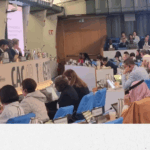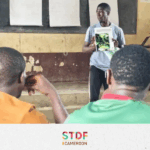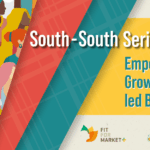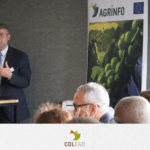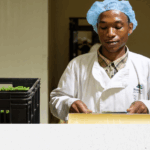- 27/06/2024
- Posted by: Sandra Borma
- Category: News
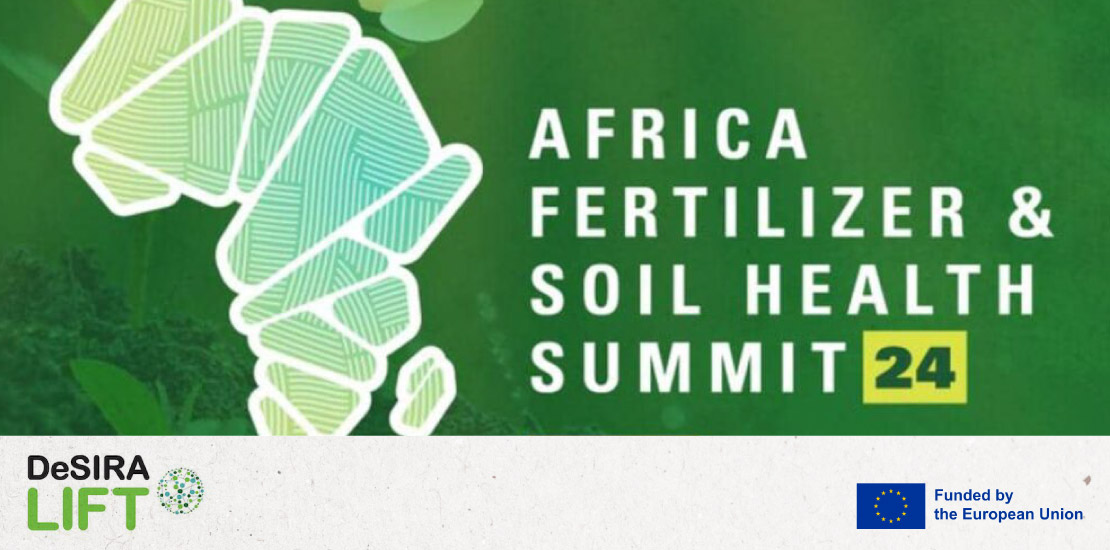
IFAD, CAADP and COLEAD join forces to address agroecology at the African Fertiliser and Soil Health Summit 2024.
For decades, agricultural productivity in Africa has been hampered by widespread land and soil degradation. This is reflected in loss of organic matter, negative nutrient balances, erosion, acidification and pollution, leading to a decline in soil fertility. To address these challenges and support a growing population, the African Union (AU) convened the African Fertilizer and Soil Health Summit (AFSH) in Nairobi, Kenya, in May 2024. This summit resulted in several important outcomes:
- The Nairobi Declaration on Fertilisers and Soil Health in Africa
- A ten-year action plan for fertiliser and soil health in Africa (2024-2034)
- The launch of an African Soil Initiative (SIA)
- The design of a financing mechanism for the Action Plan.
The Nairobi Declaration sets out global commitments to improve fertiliser production and distribution and soil health management in Africa, with the aim of achieving substantial improvements by 2034. It emphasises coordinated efforts to improve fertiliser availability, soil health and agricultural productivity, focusing on sustainable practices and capacity building.
The ten-year action plan outlines practical implementation to regenerate degraded soils, increase the use of mineral and organic fertilisers, and improve nutrient use efficiency to ensure an inclusive, food and nutrition secure agricultural sector. The strategy focuses on creating enabling financing, market and policy conditions, research and development, and capacity building through multi-stakeholder partnerships and investments.
The Soil Initiative for Africa (SIA) is an ambitious effort to improve the health and productivity of African soils, aligned with agendas such as Agenda 2063 and CAADP. The SIA prioritises investment in integrated soil and water fertility management, optimising data and information for effective planning and monitoring, and ensuring supportive policy, legal and regulatory frameworks.
The AFSH Summit also hosted 55 parallel sessions dedicated to promoting soil health and sustainable agricultural practices in Africa. These sessions, organised by various stakeholders, covered topics ranging from innovative soil fertility management strategies and the integration of organic and mineral fertilisers to the role of digital tools and data-driven decision-making.
COLEAD through the DESIRA LIFT programme, in collaboration with the International Fund for Agricultural Development (IFAD) and African research organisations (CAADP-XP4), organised a side event on Integrated Soil Health Management for Productive, Inclusive and Sustainable Agriculture and Food Systems in Africa. The event highlighted research, private sector and policy perspectives on sustainable soil health management practices and agro-ecological transitions.
In addition, COLEAD supported a parallel session on new opportunities for organic and bio-organic fertilisers for soil health in Africa, organised by the European Commission/DG INTPA, which highlighted smallholder and SME experiences with biofertilisers, a key area for COLEAD.
COLEAD’s soil strategy is closely aligned with the outcomes and objectives of AFSH, building on the principles of integrated soil fertility management and supporting a range of technology-driven field activities, trials and pilot projects. The overall aim is to translate sustainability theories into concrete agronomic practices that make sense in the field, and to support knowledge transfer, capacity building and business development in key areas of sustainable soil management.
DeSIRA-LIFT (June 2021 – May 2025) is the result of close collaboration between Agrinatura (European Alliance on Agricultural Knowledge for Development), the European Forum on Agricultural Research for Development (EFARD) and the European Commission’s Directorate-General for International Partnerships (DG INTPA). This publication receives financial support from the European Union. The content of this publication is the sole responsibility of COLEAD and can in no way be taken to reflect the views of the European Union.

